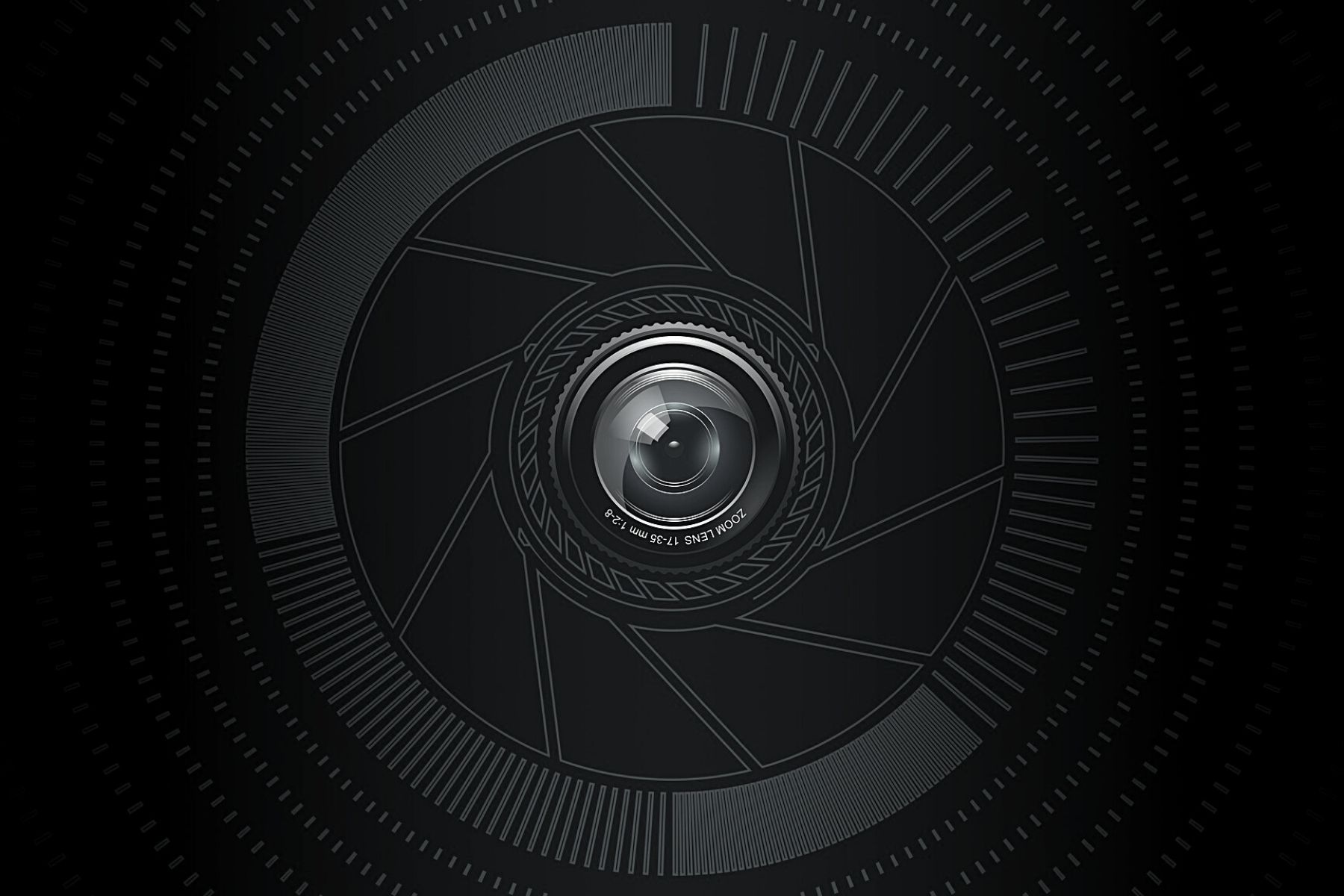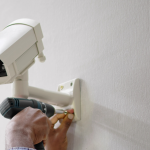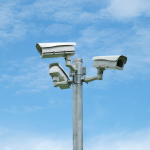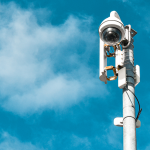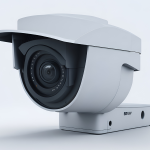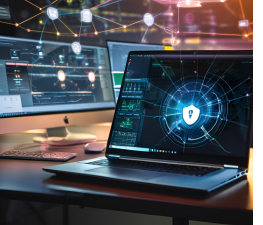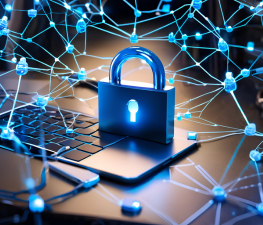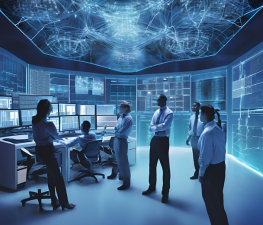Gone are those days when riches and business were entrusted to the manual supervision of security guards as with time, security systems have also evolved. Though humans have been expeditiously replaced by technology, it takes a well-formulated security system to safeguard your business infallibly. Therefore it is very crucial to think through and spend time to find, assemble and set up the right devices, at the right places to ensure absolute protection of your property. However this intricate process of finding answers to how, where, and what has been made hassle-free with field specialists ready to use their knowledge and expertise to help choose what best fits your need. Having that said, it is also important for you to have an understanding of what to consider for your security requirements. The following are 10 components to evaluate while instituting a security system:
Get Our FREE CCTV/Surveillance Checklist
- Security Cameras – The first integrant that comes to mind while assembling a security system is a camera as a majority of basic security breaks can be identified through visual surveillance. There are several types of security cameras with some serving the basic purpose while others are built with advanced features. While choosing cameras, a complete analysis of your requirement is to be done as there is a vast variety of features in the market such as low-light viewing, stealthy design, adjustability for zooming and angling, recording, hard weather resistance, and many more. Though more the better, you can prioritize and streamline the features required based on your budget and necessity.
- Storage – The aspect of storage too is provided with multiple options. When more storage space is required, the cost will be high and vice versa. The recorded data can be stored in multiple platforms, with cloud storage being the latest and most efficient. Apart from the cloud, the recorded data can either be stored internally, inside the camera like a microSD chip, or externally, outside the camera to hard drives like wireless camera storage that routes the data to a computer or a network video recorder or a wired footage storage where the data is routed to a computer or a digital video recorder. In case of a limitation to internet access, internal storage with sufficient space would be ideal. But this comes with the risk of losing the recorded footage also in case of theft of the camera. The wired and wireless options too come with challenges like those with bandwidth and severed wires. With cloud storage, the data is well protected and you can access the data from anywhere and at any time.
- Bandwidth – Bandwidth consumption has been a challenge with any given network. Even with the best set of camera systems and storage, the security system will dwindle if enough bandwidth is not provided. Nowadays with the implementation of strategic and optimized systems, bandwidth consumption is being regulated and reduced to overcome existing challenges. However ample bandwidth remains a prerequisite for high-end security systems that require high-quality video, cloud storage, and high scalability. Hence it will be ideal to consider and revisit the budget for bandwidth while choosing camera and storage.
- Alarms & Notifications – Another crucial part of an efficient security system is to be notified of any security violation at the right time. With the alarm system in place, the detectors send out notifications when they identify any event that is uncalled for. Similar to the other devices, the alarm system also comes with a few options. Based on the risk factor, you can choose who is to be notified and what actions are to be requested. Notification to police can also be activated in case of your absence for immediate inspection but false alarms would become a concern if the security system lacks efficiency in identifying a true security infringement.
- Secure Mobile Access – Mobile phones have made it easy to be responsible and to be over the top of things while being away, as the facility of remote access to security reports through mobiles has been made possible. If you are someone who is in requirement to work remotely, secure mobile access to camera recordings and other security features should be on your list. With remote access, you will be able notified of any security breaches and will be able to take necessary actions. This will also enable you to have an insight into the organization’s operation in your absence.Get Our FREE CCTV/Surveillance Checklist
- Access Control – Basic threats to your business can be kept under control by deciding and regulating who has access to each area of your establishment. This can be achieved by providing magnetic strip identity cards to individuals required on the premises or by installing keyless lock systems. The smart lock system too comes with options such as a mechanical lock system, electrical lock system, biometric lock system where unauthorized entry and tailgating can be monitored and prevented. This system also helps keep a track of movements and entries into each area at any given time.
- Cybersecurity – With the zealous technological transition of the world, we are not just in need of a security system but also in great need to secure the systems as well. Hence it comes as a prerequisite while setting up a security system as most of it is connected to the internet and compromisable nexuses. The sustainability of the software and microcodes can be maintained by keeping pace with the latest updates on them.
- Analytics – The security systems nowadays require the least human interference as with the advance of artificial intelligence, it has now become easy to sort and search for specific activity or entity from the camera footage. This feature can be used to enumerate and classify objects into different categories and timelines. This can also be used to identify if the object in vision is a person, animal, or inanimate object.
- Security System Costs – The market is being loaded with all kinds of devices that meet a vast range of requirements and it is impractical and unnecessary to invest in all of them. Hence the determining factor should be your requirement and budget. It is appropriate and conventional to identify what is indispensable and what is not. This will help you prioritize the requirements thereby helping you plan your budget efficiently. It is indeed possible to set up a simple, efficient, and budget-friendly security system with the right guidance from the experts.Get Our FREE CCTV/Surveillance Checklist
- Detectors – If your business involves heavy machinery, expensive gadgets, precious lives, and chances of an outbreak that could be potentially dangerous, it is important that you consider installing detectors. The latest and smart detectors not only identify the danger but also initiates mitigation of it. A few of the most commonly used detectors are glass break detectors, smoke detectors, motions detectors, temperature detectors, and detectors such as CO detectors that are designed to identify environmental hazards. Based on the confidentiality and threat to your business. Other systems like the door and window sensors, ultrasonic detectors, pressure mats, and impact-activated microphones are a few out of the many examples.
Needless to say, the institution of a security system is a long-term investment entrusted with priceless resources and realms hence it is cardinal that the right choices are made. Be it a small business or a multisite commercial, monitored or unmonitored, wired or wireless, there are many options catering to each of these requirements. It is crucial to research and try each combination to find the right fit for your needs before investing your money. Though you are well versed with your needs, it takes much more knowledge in forestalling, detection, delay, and response to find a suitable, appropriate, and economical security system for you. The complexity of this process is now painless with experts ready to help. All you have to do is find the right people who will help you find what is right for you.
